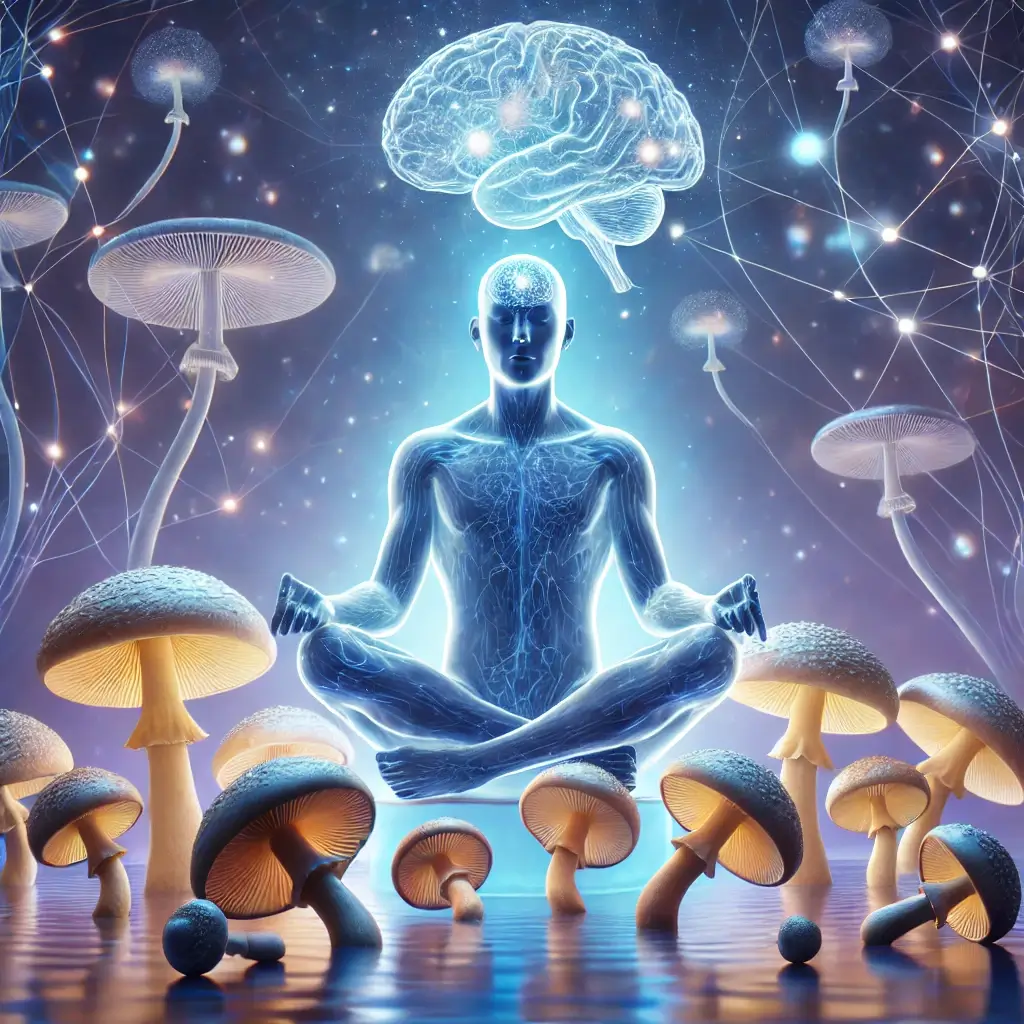Beyond Traditional Therapy: The Emerging Research on Psilocybin for Anxiety Management
The Promising Research Behind Mushroom-Based Anxiety Treatment
There is evidence that mushrooms can help with anxiety. Psilocybin, the active ingredient in magic mushrooms, has been shown in animal and human studies to have anti-anxiety effects.
Clinical Evidence: Anxiety Reduction After Psilocybin Treatment
People with anxiety disorders who received psilocybin showed a significant reduction in anxiety symptoms when compared to those who received a placebo in one study. Psilocybin’s effects were also long-lasting, with participants reporting a reduction in anxiety symptoms for up to 6 months following the study.
Cancer Patients Show Remarkable Anxiety Relief
Another study discovered that psilocybin can help reduce anxiety in cancer patients. Participants in the study who received psilocybin experienced a significant reduction in anxiety symptoms when compared to those who received a placebo.
Breakthrough Case Study: Adolescent Mental Health Transformation
A 2021 Study describes a 16-year-old male patient treated in a psychiatric clinic for social distancing, increased anxiety intensity, and poor school performance. He had learning disabilities, a lack of motivation for schoolwork, poor academic performance, and social isolation from his peers and teachers. Transferring to a new school did not result in any improvement.
From Isolation to Connection: A Therapeutic Journey
The adolescent began attending a psychotherapeutic group but found it difficult to communicate with other members and express his feelings, so he avoided sessions frequently due to anxiety. He used marijuana on occasion, but it didn’t help him relax or function better. He consumed two grams of Psilocybe mushrooms, corresponding to 20 to 30 mg of the substance, on three separate occasions over an 18-month period after being offered psilocybin by a friend.
The Transformative Experience of Psilocybin
The patient described the experience as sublimity and enlightenment. Following this experience, he participated in group activities more frequently, communicated better with other group members, expressed emotions without inhibition, and felt less anxious.
Unprecedented Psychological Improvement
Such rapid and obvious improvement in group psychotherapy outcomes has not previously been reported. In fact, it has not been demonstrated that psychotherapy alone can result in such abrupt and long-term changes in patients’ mental status.
Scientific Understanding: How Psilocybin Affects the Brain
The mechanism by which psilocybin reduces anxiety is unknown. It is thought to work by increasing activity in the prefrontal cortex, a part of the brain involved in emotion regulation. By increasing connectivity between different parts of the brain, psilocybin may also help to reduce anxiety.
Important Safety Considerations
It should be noted that psilocybin is a highly potent psychedelic drug that should only be used under the supervision of a trained therapist. There are some risks to using psilocybin, such as flashbacks and anxiety attacks.
Professional Guidance Is Essential
If you want to use mushrooms to relieve anxiety, you should first consult with your doctor. They can advise you on how to use psilocybin safely and help you determine if it is right for you.
Alternative Approaches to Anxiety Management
Here are some other methods for reducing anxiety:
Exercise: A Natural Anxiety Reducer
Exercise is an excellent way to reduce anxiety. It causes the release of endorphins, which have mood-boosting properties.
Meditation: Calming the Anxious Mind
Meditation can help to relax the mind and reduce anxiety. There are numerous types of meditation, so find one that suits you.
Yoga: Mind-Body Connection for Anxiety Relief
Yoga is a mind-body practice that can help with anxiety. It incorporates physical postures as well as breathing exercises and meditation.
Sleep: The Foundation of Emotional Resilience
Get enough sleep: When you’re well-rested, you can deal with stress and anxiety better. Attempt to get 7-8 hours of sleep per night.
Nutrition: Fueling Mental Wellness
Eat a healthy diet: Eating a healthy diet can help you feel better and reduce anxiety. Consume plenty of fruits, vegetables, and whole grains.
Caffeine and alcohol should be avoided: Caffeine and alcohol can exacerbate anxiety. It is best to avoid these substances if you are anxious.
Professional Support: You Don’t Have to Face Anxiety Alone
Talk to a therapist: If you’re experiencing anxiety, speaking with a therapist can be beneficial. They can teach you coping strategies and assist you in managing your anxiety.
It is critical to seek help if you are experiencing anxiety. There are numerous effective treatments available, and you do not have to face this alone.
References
1. National Center for Biotechnology Information. (2021). https://www.ncbi.nlm.nih.gov/pmc/articles/PMC8596485/
